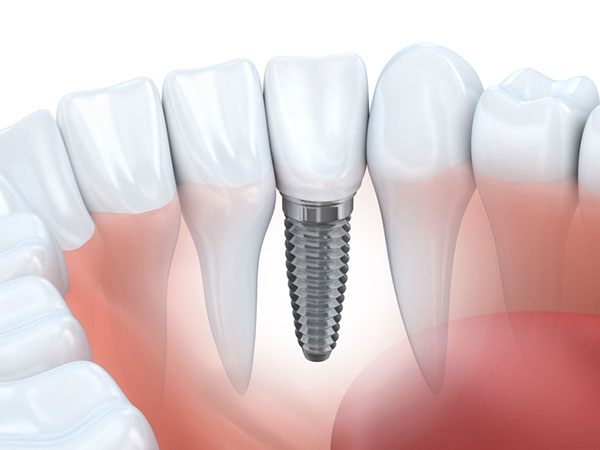Besides crowns, bridges, inlays/onlays, fillings, veneers and dentures, they are one of the possibilities for a dental prosthesis. In case of tooth loss, dental implants are the cheapest option, as their aesthetics are particularly impressive. Further characteristics of implants are strength and stability as well as the best chewing function as with your own tooth. A further advantage of this therapy is the combination of good compatibility and high durability of an implant. Single teeth as well as several teeth can be functionally incorporated. Implants can also be used to attach bridges or fixed prostheses to edentulous jaws. The area of application also includes the condition of the jaw bone. Dental implants have been known for 30 years and have become an integral part of dentistry for 10 years.

The procedure of implantation is as follows: Implants are placed in the jawbone. This can take place either immediately after the extraction of the tooth (immediate implant) or after a previous tooth loss. The implant must then heal into the bone. Once this is done, a crown, bridge or prosthesis can be placed. How long is a healing phase of implants necessary: The healing time is determined by the bone quality and the bone volume. This is expected to take 3 months in the lower jaw and 6 months in the upper jaw. Immediate implants can be fitted with a dental prosthesis depending on the findings. (immediate loading).
Dentists often recommend a load-free healing phase, as the biological integration of the implant can only take place after weeks or months.
Dental implants usually consist of titanium, which has proven to be optimal in scientific studies. Titanium implants in combination with a titanium/zirconium abutment have the best biological result.
As far as the painfulness of dental implants is concerned, it can be said that this is hardly the case because the area in question is locally anaesthetized during the operation. Afterwards there is only slight pain, which can be remedied with painkillers. Nevertheless, a rest period of up to three days should be observed after a more complex operation.
As far as the compatibility of implants is concerned, it can be noted that titanium is very well accepted by the human body and does not cause allergies. This material is also used throughout medicine.
In order not to have to remain without teeth during the healing phase, a dental prosthesis can be offered after the implantation. If it is a gap in a single tooth, a plastic tooth can be fitted. If there are several missing teeth, a removable prosthesis is used. A gentle healing phase is important and is achieved by a good temporary restoration after the implantation.
The durability of implants cannot be generally stated. However, long-term studies prove that the material of an implant is highly durable, even for a lifetime. The long-term durability of implants depends, among other things, on the condition of the jawbone, the bone augmentation measures, the patient's cooperation, but the experience of the implantologist is always essential.
Safety and comfort are offered to the patient during treatment with dental implantation by our three-dimensional X-ray technique (digital volume tomography) including computer-assisted navigated implantology. The identification of possible problems should be made possible by regular check-ups. Implant loss can easily be repaired with a new implant. The costs of implant treatment depend on the materials used and the prosthetic solutions.
We will be happy to advise you on all details and invite you to an initial meeting.
| Monday | 08:00 – 12:00 Uhr 13:00 – 18:00 Uhr |
| Tuesday | 08:00 – 12:00 Uhr 13:00 – 18:00 Uhr |
| Wednesday | 08:00 – 12:00 Uhr 13:00 – 18:00 Uhr |
| Thursday | 08:00 – 12:00 Uhr 13:00 – 18:00 Uhr |
| Friday | closed |
| Saturday & Sunday Dental Emergency | 08:00 – 18:00 |
Please make an appointment by telephone